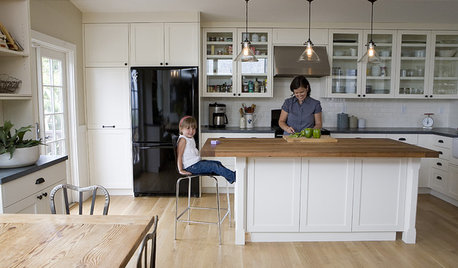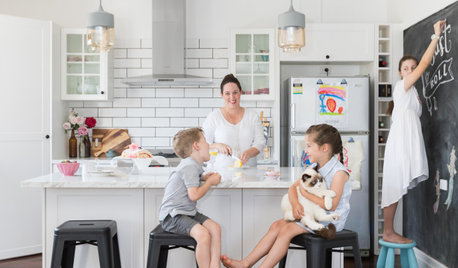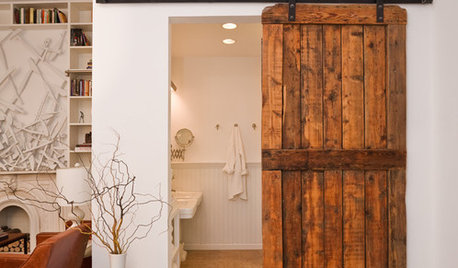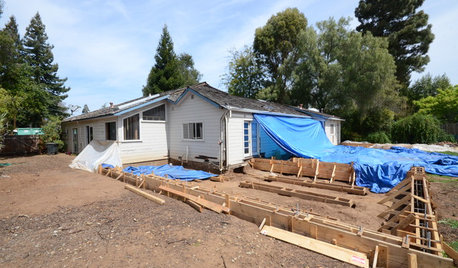A few dog newbie questions...
Fori
14 years ago
Related Stories

DREAM SPACESJust a Few Things for the Dream-Home Wish List
A sunken hot tub, dedicated game room, tree house, hidden wine cellar and more. Which of these home luxuries would you like best?
Full Story
ORGANIZINGDo It for the Kids! A Few Routines Help a Home Run More Smoothly
Not a Naturally Organized person? These tips can help you tackle the onslaught of papers, meals, laundry — and even help you find your keys
Full Story
GARDENING GUIDESNo-Regret Plants: 5 Questions Smart Shoppers Ask
Quit wasting money and time at the garden center. This checklist will ensure that the plants you're eyeing will stick around in your yard
Full Story
KITCHEN DESIGN9 Questions to Ask When Planning a Kitchen Pantry
Avoid blunders and get the storage space and layout you need by asking these questions before you begin
Full Story
GREEN BUILDINGConsidering Concrete Floors? 3 Green-Minded Questions to Ask
Learn what’s in your concrete and about sustainability to make a healthy choice for your home and the earth
Full Story
FEEL-GOOD HOMEThe Question That Can Make You Love Your Home More
Change your relationship with your house for the better by focusing on the answer to something designers often ask
Full Story
SELLING YOUR HOUSE15 Questions to Ask When Interviewing a Real Estate Agent
Here’s what you should find out before selecting an agent to sell your home
Full Story
DOORS5 Questions to Ask Before Installing a Barn Door
Find out whether that barn door you love is the right solution for your space
Full Story
REMODELING GUIDESSurvive Your Home Remodel: 11 Must-Ask Questions
Plan ahead to keep minor hassles from turning into major headaches during an extensive renovation
Full Story
CURB APPEAL7 Questions to Help You Pick the Right Front-Yard Fence
Get over the hurdle of choosing a fence design by considering your needs, your home’s architecture and more
Full StoryMore Discussions









trinigemini
User
Related Professionals
Dania Beach Architects & Building Designers · Schiller Park Architects & Building Designers · Ogden Interior Designers & Decorators · Atlanta Furniture & Accessories · Walnut Creek Furniture & Accessories · Portage Furniture & Accessories · Asheville Furniture & Accessories · Detroit Furniture & Accessories · Central Cabinets & Cabinetry · Branford Flooring Contractors · Faribault Flooring Contractors · Fort Walton Beach Flooring Contractors · Green Bay Flooring Contractors · West Islip Flooring Contractors · Wilmington Flooring ContractorsGina_W
mazer415
ForiOriginal Author
Gina_W
ForiOriginal Author
cindyb_va
Gina_W
ForiOriginal Author
Meghane
ForiOriginal Author
trinigemini
quasifish
Meghane
Lily316
ForiOriginal Author